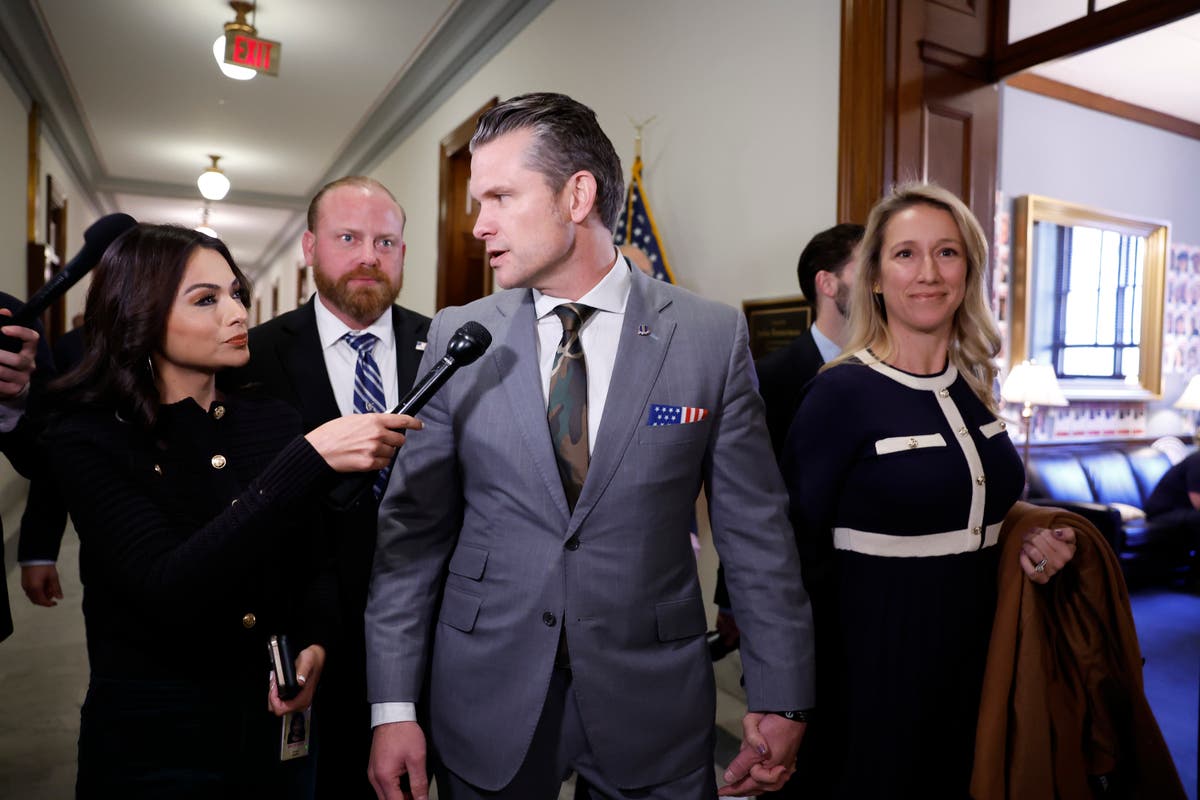President-elect Donald Trump’s nominee for secretary of defense, Pete Hegseth, previously argued that out gay people serving in the military is part of a larger “Marxist” agenda.
Hegseth made the argument that the policy is putting social justice over combat readiness in his book The War on Warriors which was published this year.
He also slammed the previous policy — Don’t Ask, Don’t Tell — which allowed gay people in the armed services as long as they didn’t reveal their sexual orientation. The nominee also criticized the repeal of Don’t Ask, Don’t Tell.
The policy was a compromise put forward in 1993 during the presidency of Bill Clinton to allow gay people to serve in the armed forces over the objections of some top commanders. Before that, there had been a ban on gay people in the military put in place during the Second World War, The Guardian noted.
The policy was repealed during Barack Obama’s presidency in 2011 after several complaints of discrimination following dishonorable discharges of members of the armed forces after their sexual orientation had been revealed.
Hegseth’s nomination is in trouble amid allegations of sexual assault, excessive drinking, and financial mismanagement.
He has rejected Don’t Ask, Don’t Tell as being the beginning of ideological “tinkering” with the military for social justice aims, according to CNN.

However, he has also shared his dismay at its repeal, stating that it was “a breach in the wire” that cleared the way for cultural change in the military. In the book, Hegseth writes that he was about to head to Afghanistan when the policy was repealed.
“Our commander briefed the unit, peppered with a few jokes. You know, infantry stuff,” he wrote. “We mostly laughed it off and moved on. America was at war. Gays and lesbians were already serving in the military. I had seen the enemy with my own eyes. We needed everybody.”
But he has now argued that the more inclusive policy was a misstep, claiming that it allowed transgender people to enter the military and women to serve in combat roles. Women had previously been stopped from serving in combat until a change in 2013.
In an interview with rightwing broadcaster Ben Shapiro earlier this year, Hegseth said, “It started with Clinton under ‘Don’t Ask, Don’t Tell’.”
He pointed to a military recruitment ad that showed a soldier with two lesbian mothers revealing the change in the culture surrounding the military.
“At least when it was an ‘Army of One’, they were, you know, [a] tough-looking, go get ’em army,” Hegseth told Shapiro. “Now you just have the absurdity of ‘I have two mommies and I’m so proud to show them that I can wear the uniform too.’ So they, it’s just like everything else the Marxists and the leftists have done. At first, it was camouflaged nicely and now they’re just open about it.”
Hegseth made the statements outlining his dislike of gay people serving in the military before he was nominated by Trump to serve as his secretary of defense.
Hegseth appeared to mix up the issues of Don’t Ask, Don’t Tell, and women in the armed forces during a 2015 appearance on Fox News, as noted by Meidas News.
“Through Don’t Ask, Don’t Tell and women in the military and these standards, they’re going to inevitably start to erode standards because they want that one female special operator, that one female Green Beret, that one female Army Ranger, that one female Navy Seal, so they can put them on a recruiting poster and feel good about themselves – and [that] has nothing to do with national security,” he said at the time.
This week, the former Army National Guard member and Fox News host didn’t say if he still thought it was an error to repeal Don’t Ask, Don’t Tell when asked by CNN.
He added that he supported women serving in the military even after claiming that it was an “erosion” of the standards.
One of the chapters in his book is entitled The (deadly) obsession with women warriors.
“I’m going to say something politically incorrect that is perfectly commonsensical observation,” he wrote. “Dads push us to take risks. Moms put the training wheels on our bike. We need moms, but not in the military, especially in combat units.”
“If you train a group of men to treat women equally on the battlefield then you will be hard-pressed to ask them to treat women differently at home,” he added.





